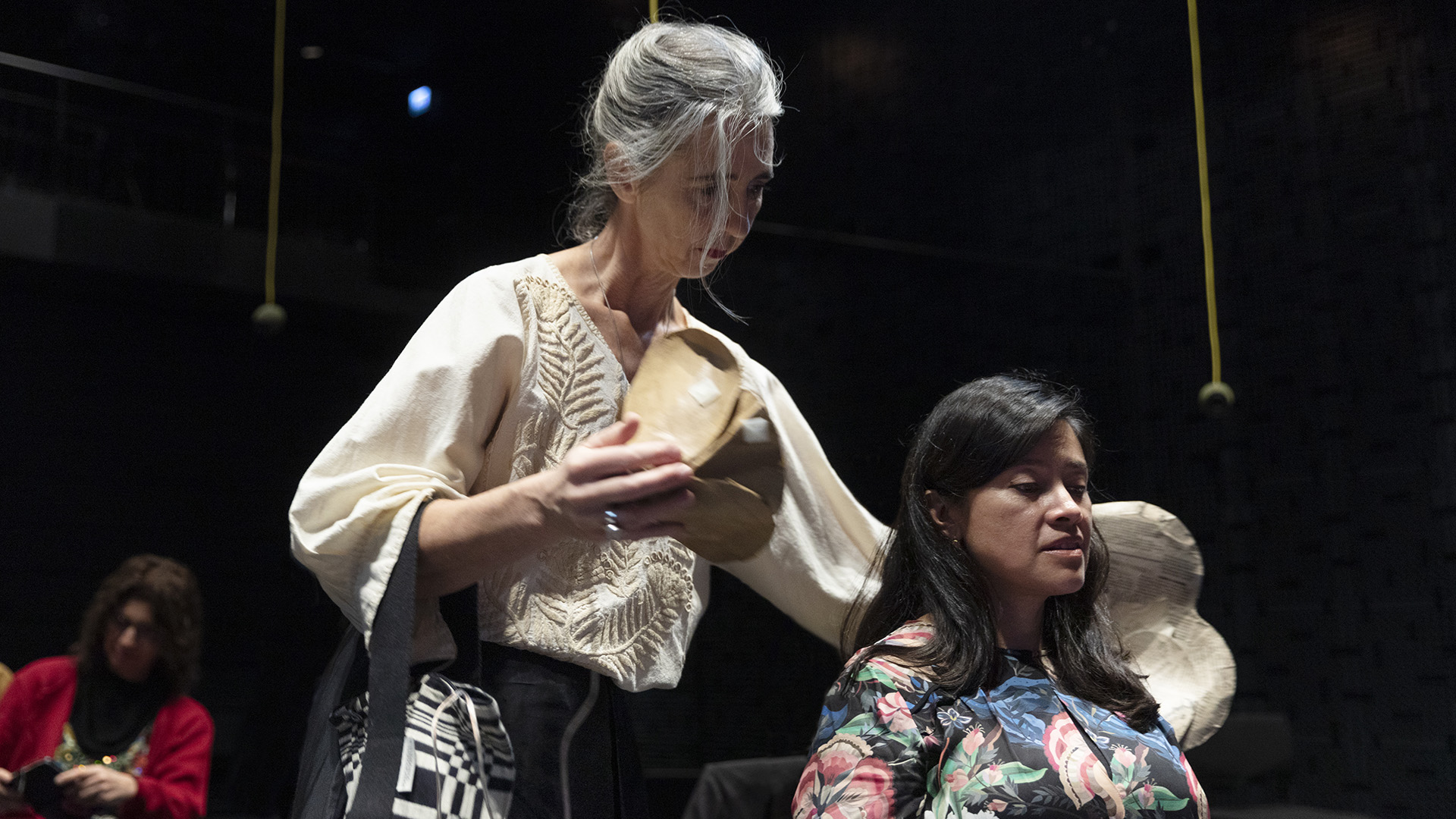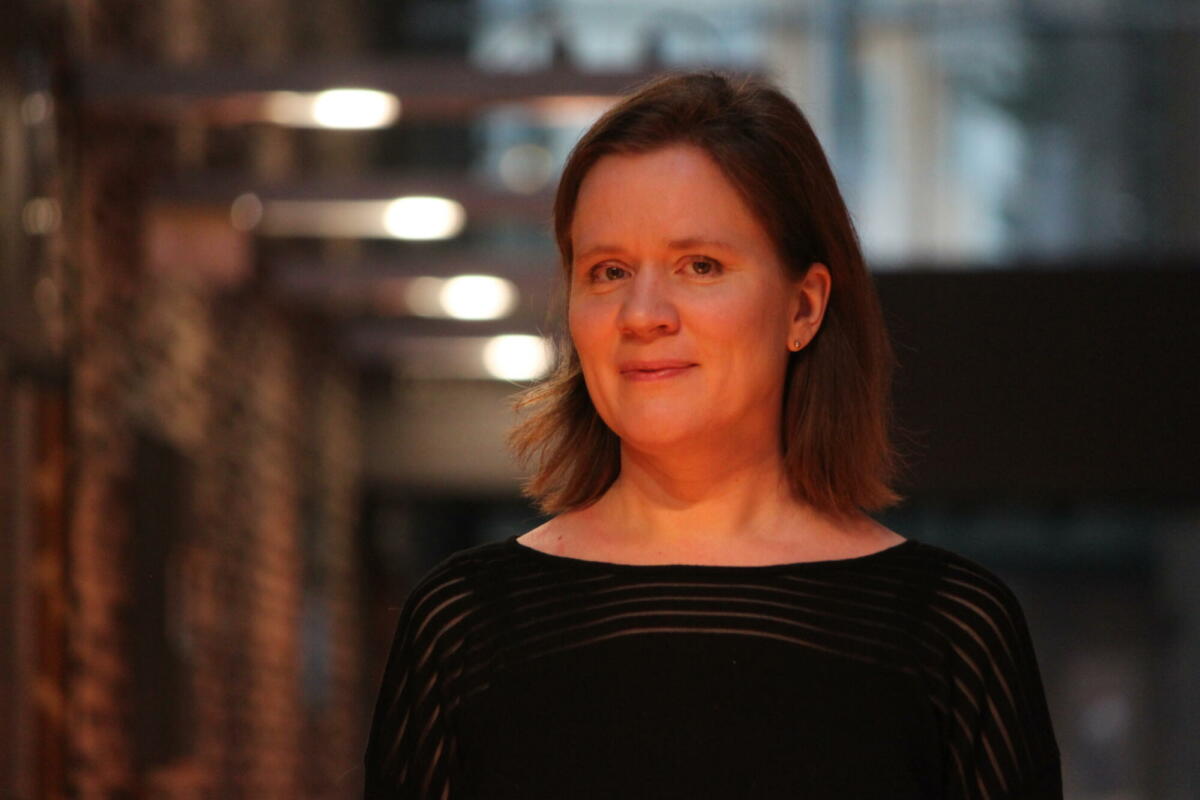International Prize for Artistic Research in Music

About the Prize
The International Prize for Artistic Research in Music promotes:
- Excellent doctoral work in Artistic Research in Music to a wider public
- Sharing of a benchmark practice amongst the institutions engaged in it.
The Prize is given every two years in response to a call for recently completed doctoral projects in Artistic Research in Music from the participating institutions. The Prize runs in association with biennial Doctors in Performance conference. It is anticipated that the Prize develops into an international milestone for the field.
Participating institutions
The institutions involved in the Doctors in Performance (DiP) steering group form the pool from which submissions are made. These institutions are:
- Estonian Academy of Music and Theatre (Tallinn)
- Lithuanian Academy of Music and Theatre (Vilnius)
- Royal Academy of Music (London)
- Royal Irish Academy of Music (Dublin)
- Sibelius Academy, Uniarts Helsinki
Assessment panel
A three-member panel is formed, where one is expected to be an expert associated with DiP steering group institutions. Mieko Kanno chairs the panel and manages the procedure, but she does not comment on the nominated projects nor give a vote.
2025 panel members
- Stephen Broad, Professor, Director of Research and Knowledge Exchange, Royal Conservatoire of Scotland
- Paul Craenen, Composer and Research Professor, Royal Conservatoire The Hague
- Diāna Zandberga, Pianist and Vice-Rector for Research and Creative Work, Jazeps Vitols Latvian Academy Of Music
Resources
The International Prize for Artistic Research in Music considers it important to support emerging artist-researchers and the community. We award 1000 euros for the Prize recipient. We also pay fees for the panel members.
Assessment procedure and structure
Each participating institution nominates one completed (and successfully defended) doctoral project in Artistic Research from the past two years. The doctorated individuals do not apply for this – the institution selects one. Each institution writes a short description of the rationale for the nomination to accompany the submission. The procedure is led by Mieko Kanno as Chair of the International Prize for Artistic Research in Music, supported by Sibelius Academy, Uniarts Helsinki.
The assessment guidelines
- What is the potential – or future impact – of the project?
- How does the project capture the modality of Artistic Research in Music?
- What is the nature of synthesis between theory, methodology, and artistic practice in the project?
The materials to be submitted
The materials may include theses, scores, music editions, and recordings (audio/video). We respect the different ways in which each institution combines varied components into doctoral degree submissions. We follow the EU open access policy.
Prize 2025
2025 nominated doctoral projects:
- Deirbhile Brennan A Performer’s Exploration of Aspects of Selected Nineteenth-Century Solo Piano Works by Female Composers: Schumann, Chaminade and Beach. Royal Irish Academy of Music (Dublin), 2024.
- Vittoria Ecclesia Practice Beyond Boundaries: Enhancing Musicianship through Historical Clarinet Affordances. Estonian Academy of Music and Theatre (Tallinn), 2024. Practical projects included a doctoral concert on 18 April 2024
- Marta Finkelštein Muzikos Kuratorysté Šiuokaikybéje: Kontekstai, Lietuviškoji Scena ir Ansamblis Synaesthesis [Curating Music in Contemporaneity: Contexts, Lithuanian Scene, and Ensemble Synaesthesis]. Lithuanian Academy of Music and Theatre (Vilnius), 2023.
- Christopher Palameta Berlioz’s Lost Oboe? Exploring the Forgotten Last Generation of the Simple-System Oboe in France. Royal Academy of Music (London), 2023.
- Riikka Talvitie Muuttuva säveltäjä: kohti dialogisia käytäntöjä [The Composer in Flux: Towards a Dialogic Practice]. Sibelius Academy (Helsinki), 2023. Link to the thesis Link to Lectio praecursoria (presentation at the Public Deferense) Links to composition projects included (selection): Self Portrait – experimental video, Mimesis, metaphor, modelling – performance for keyboard instruments, video and live electronics
Prize 2025: Riikka Talvitie

The panel comments: What makes this project exemplary is the presented dialogue between artistic practice and discursive reflection. Talvitie’s research questions form not only the backbone of her dissertation, but also flow organically into (or emerge from) the artistic work, equally in verbal and discursive ways. One finds a mixture and juxtaposition of sounds, images, performance, poetry, and reflections. In this way, Talvitie demonstrates how the boundary between reflection and creation can become blurred in artistic research, which on the one hand may create ambiguity, but on the other hand also encourages reflection on the possible role of artists in today’s society.
Read more about the first awarded prize
Commended: Vittoria Ecclesia
Contact person for this project
Mieko Kanno
Professor of Artistic Research in Music Performance
Founder, Chair of the International Prize for Artistic Research in Music:
mieko.kanno@uniarts.fi
Project name
International Prize for Artistic Research in Music
Time
01/2025
Funder
The prize is funded by the participating institutions in Doctors in Performance network
Collaborators
- Estonian Academy of Music and Theatre (Tallinn)
- Lithuanian Academy of Music and Theatre (Vilnius)
- Royal Academy of Music (London)
- Royal Irish Academy of Music (Dublin)
- Sibelius Academy at Uniarts Helsinki
Lead organisation
Sibelius Academy
About the Prize
The International Prize for Artistic Research in Music promotes:
- Excellent doctoral work in Artistic Research in Music to a wider public
- Sharing of a benchmark practice amongst the institutions engaged in it.
The Prize is given every two years in response to a call for recently completed doctoral projects in Artistic Research in Music from the participating institutions. The Prize runs in association with biennial Doctors in Performance conference. It is anticipated that the Prize develops into an international milestone for the field.
Participating institutions
The institutions involved in the Doctors in Performance (DiP) steering group form the pool from which submissions are made. These institutions are:
- Estonian Academy of Music and Theatre (Tallinn)
- Lithuanian Academy of Music and Theatre (Vilnius)
- Royal Academy of Music (London)
- Royal Irish Academy of Music (Dublin)
- Sibelius Academy, Uniarts Helsinki
Assessment panel
A three-member panel is formed, where one is expected to be an expert associated with DiP steering group institutions. Mieko Kanno chairs the panel and manages the procedure, but she does not comment on the nominated projects nor give a vote.
2025 panel members
- Stephen Broad, Professor, Director of Research and Knowledge Exchange, Royal Conservatoire of Scotland
- Paul Craenen, Composer and Research Professor, Royal Conservatoire The Hague
- Diāna Zandberga, Pianist and Vice-Rector for Research and Creative Work, Jazeps Vitols Latvian Academy Of Music
Resources
The International Prize for Artistic Research in Music considers it important to support emerging artist-researchers and the community. We award 1000 euros for the Prize recipient. We also pay fees for the panel members.
Assessment procedure and structure
Each participating institution nominates one completed (and successfully defended) doctoral project in Artistic Research from the past two years. The doctorated individuals do not apply for this – the institution selects one. Each institution writes a short description of the rationale for the nomination to accompany the submission. The procedure is led by Mieko Kanno as Chair of the International Prize for Artistic Research in Music, supported by Sibelius Academy, Uniarts Helsinki.
The assessment guidelines
- What is the potential – or future impact – of the project?
- How does the project capture the modality of Artistic Research in Music?
- What is the nature of synthesis between theory, methodology, and artistic practice in the project?
The materials to be submitted
The materials may include theses, scores, music editions, and recordings (audio/video). We respect the different ways in which each institution combines varied components into doctoral degree submissions. We follow the EU open access policy.
Prize 2025
2025 nominated doctoral projects:
- Deirbhile Brennan A Performer’s Exploration of Aspects of Selected Nineteenth-Century Solo Piano Works by Female Composers: Schumann, Chaminade and Beach. Royal Irish Academy of Music (Dublin), 2024.
- Vittoria Ecclesia Practice Beyond Boundaries: Enhancing Musicianship through Historical Clarinet Affordances. Estonian Academy of Music and Theatre (Tallinn), 2024. Practical projects included a doctoral concert on 18 April 2024
- Marta Finkelštein Muzikos Kuratorysté Šiuokaikybéje: Kontekstai, Lietuviškoji Scena ir Ansamblis Synaesthesis [Curating Music in Contemporaneity: Contexts, Lithuanian Scene, and Ensemble Synaesthesis]. Lithuanian Academy of Music and Theatre (Vilnius), 2023.
- Christopher Palameta Berlioz’s Lost Oboe? Exploring the Forgotten Last Generation of the Simple-System Oboe in France. Royal Academy of Music (London), 2023.
- Riikka Talvitie Muuttuva säveltäjä: kohti dialogisia käytäntöjä [The Composer in Flux: Towards a Dialogic Practice]. Sibelius Academy (Helsinki), 2023. Link to the thesis Link to Lectio praecursoria (presentation at the Public Deferense) Links to composition projects included (selection): Self Portrait – experimental video, Mimesis, metaphor, modelling – performance for keyboard instruments, video and live electronics
Prize 2025: Riikka Talvitie

The panel comments: What makes this project exemplary is the presented dialogue between artistic practice and discursive reflection. Talvitie’s research questions form not only the backbone of her dissertation, but also flow organically into (or emerge from) the artistic work, equally in verbal and discursive ways. One finds a mixture and juxtaposition of sounds, images, performance, poetry, and reflections. In this way, Talvitie demonstrates how the boundary between reflection and creation can become blurred in artistic research, which on the one hand may create ambiguity, but on the other hand also encourages reflection on the possible role of artists in today’s society.
Read more about the first awarded prize
Commended: Vittoria Ecclesia
Contact person for this project
Mieko Kanno
Professor of Artistic Research in Music Performance
Founder, Chair of the International Prize for Artistic Research in Music:
mieko.kanno@uniarts.fi